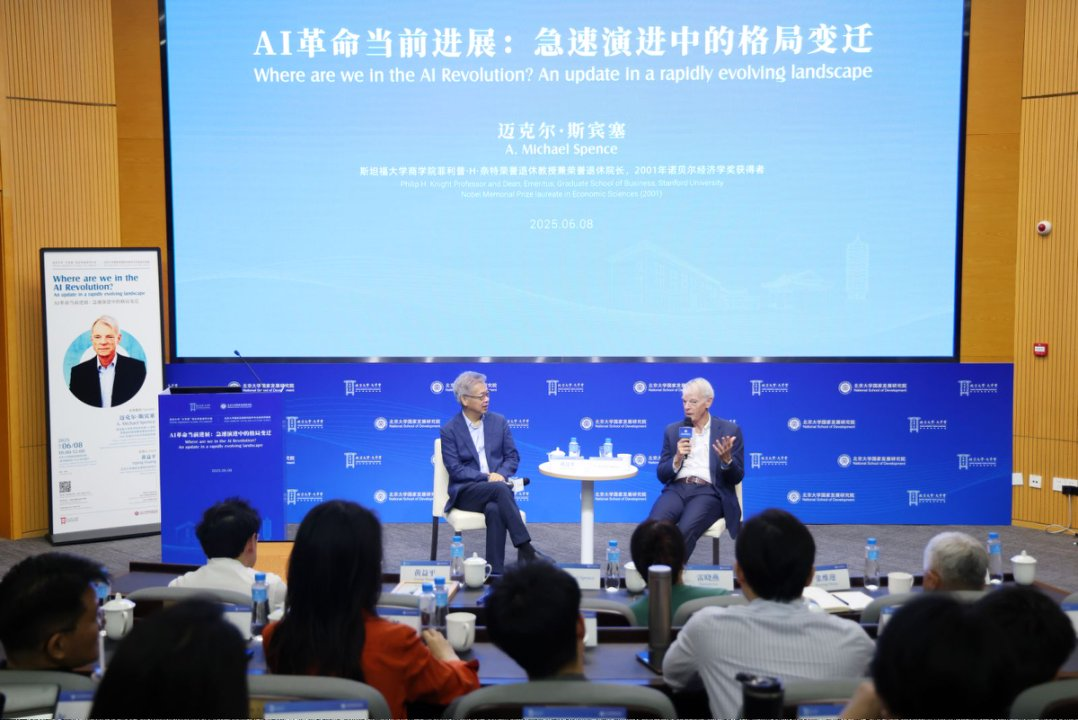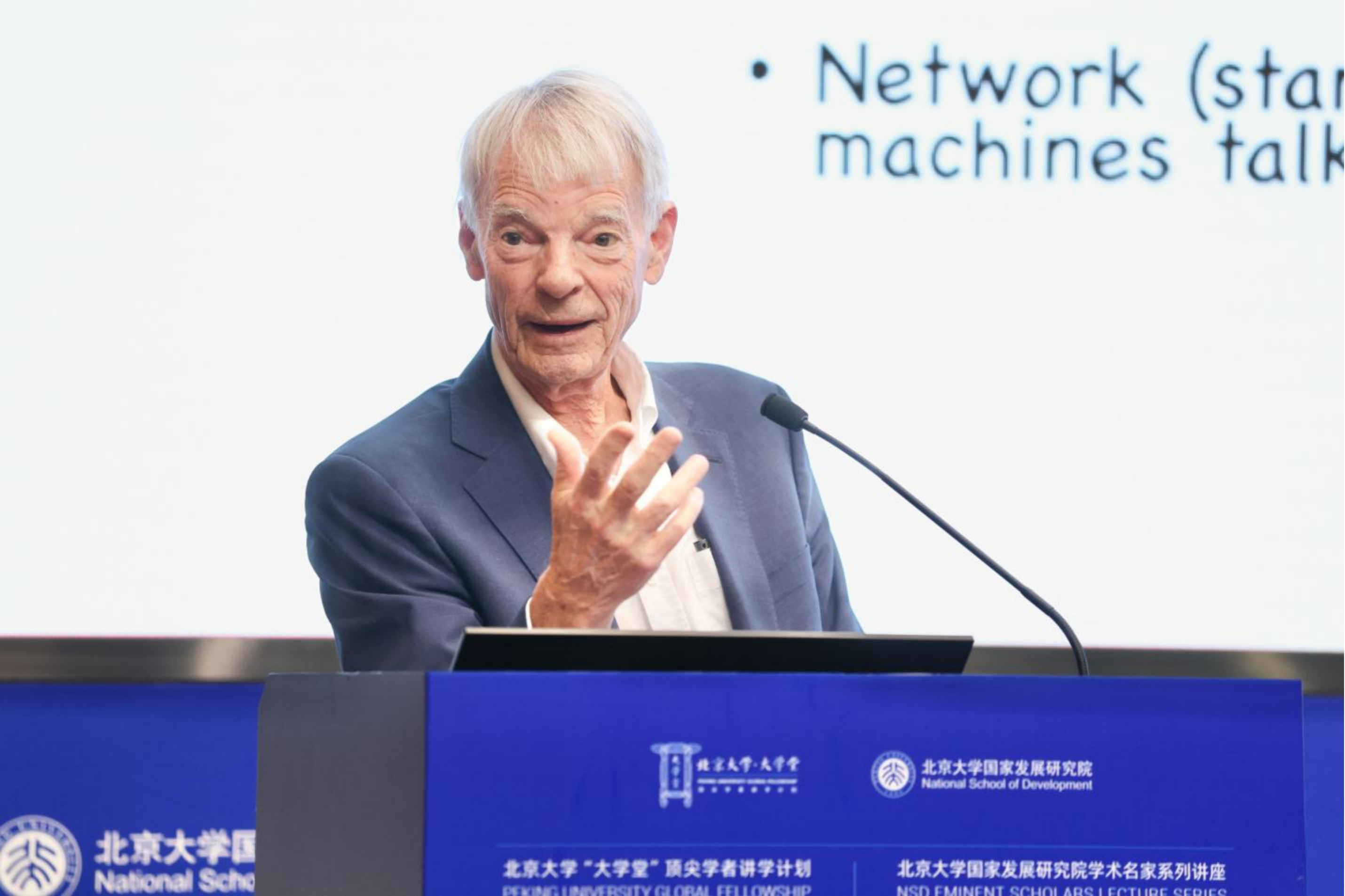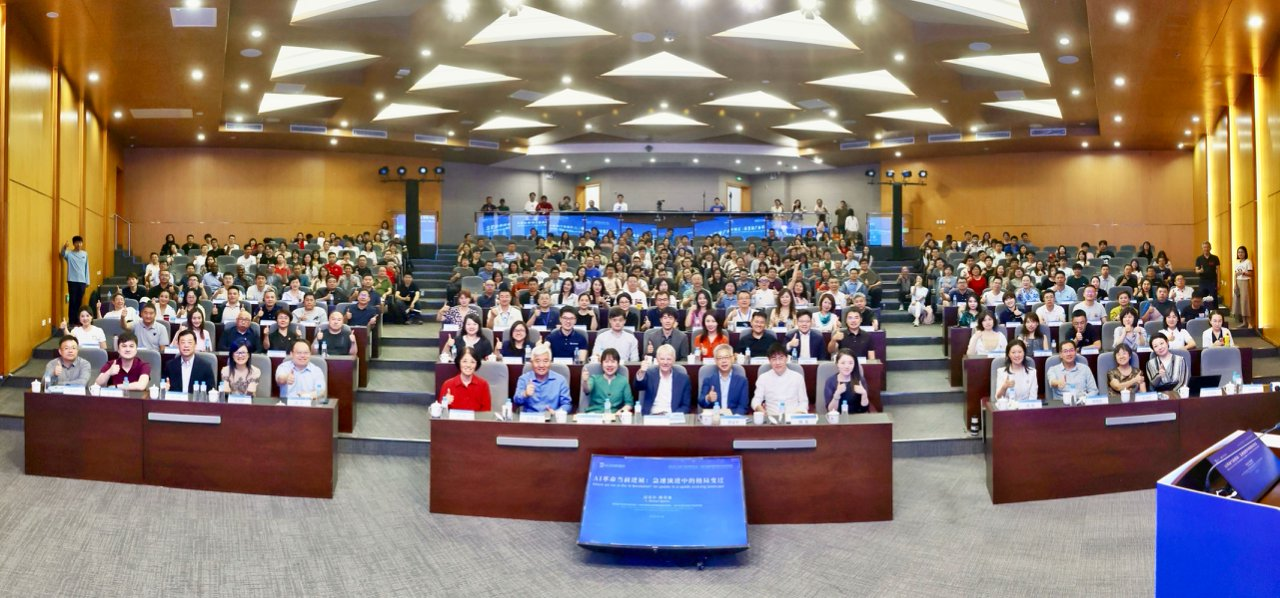Peking University, June 9, 2025: Amid disruptions, demographic shifts and technological breakthroughs, where does humanity stand in the age of AI?
On June 8, Nobel Laureate and renowned economist Professor A. Michael Spence delivered a lecture at Peking University’s National School of Development (NSD) Chengze Garden Campus.
Professor Spence, the Philip H. Knight Professor and Dean Emeritus of Stanford Graduate School of Business, received the Nobel Memorial Prize in Economic Sciences in 2001. Themed “Where Are We in the AI Revolution?”, he examined the ongoing technological advancements in artificial intelligence and their implications for global economic trends with nearly 300 students and faculty present. The lecture was hosted by Professor Huang Yiping, Dean of NSD.
World renowned economist Professor A. Michael Spence delivered a lecture on the AI revolution, highlighting recent economic and technological developments. The event was hosted by Professor Huang Yiping, Dean of PKU National School of Development.
Spence began by outlining three key forces currently shaping the global economy. First, economies today are increasingly vulnerable to frequent and severe disruptions, including pandemics, geopolitical tensions, and military conflicts. Secondly, many developed nations face long-term structural challenges to growth, such as aging populations and demographic shifts. Most importantly, technological breakthroughs, especially in AI, biomedical research, life sciences, and sustainability, are rapidly transforming industries and societies.
Spence outlined three key forces currently shaping the global economy, namely disruptions, demographic shifts and technological advancements.
Focusing on artificial intelligence, Spence discussed how its applications are driving a profound economic transformation. Beyond its impact on labor markets, he noted that the costs of training and deploying AI models are declining, while the open-source AI ecosystem continues to grow. He also highlighted the expanding role of AI agents in automating complex tasks.
These developments signal rapid, widespread advances in scientific research and practical applications. He cited examples such as Microsoft and Paige’s collaboration to develop the world’s largest image-based AI model for cancer detection, as well as AI’s growing role in disease diagnosis, robotics, universal translation, and digital content creation.
Spence concluded by urging the audience to consider whether AI and related technologies can truly enhance economic productivity and help reverse the global slowdown in growth, posing a vital question at the intersection of innovation and economics.
During a discussion with Professor Huang Yiping, Spence addressed the widely debated question of whether AI could eventually replace humans in the workforce. He argued that AI remains far from capable of fully replacing the complex responsibilities that comprise a single human job.
At present, AI systems are largely limited to learning and replication rather than independent reasoning or adaptability. Moreover, most developers remain cautious about granting AI too much autonomy, instead focusing on its use as a powerful tool to enhance human experience and accelerate learning.
The lecture concluded with an interactive Q&A session. In response to a question about the future outcomes of the current intense competition among large language models, Spence emphasized that monopolization in today’s technological landscape is increasingly unlikely. While past developments saw a concentration of capabilities among a few dominant tech giants, he noted that new technologies are continuously reshaping the field, lowering barriers to entry and enabling new players to emerge and compete.
Regarding how AI and emerging technologies are reshaping collaboration and working relationships within the labor force, Spence observed that while AI is often viewed as a personal productivity tool, its collaborative potential remains largely untapped. Unlocking this dimension, he suggested, could open new avenues for innovation and create opportunities for both established and emerging players.
The lecture was held at NSD Chengze Garden Campus with nearly 300 students and faculty in attendance.
The lecture, part of the NSD Eminent Scholars Lecture Series and PKU Global Fellowship program, kicked off the 2025 Luohan Academy x PKU-NSD Digital Economy Conference. Professor Spence will deliver a keynote address and join panel discussions at the conference.
Written by: Wong Jun Heng
Edited by: Chao Ranran
Source: PKU National School of Development, PKU Office of International Relations


